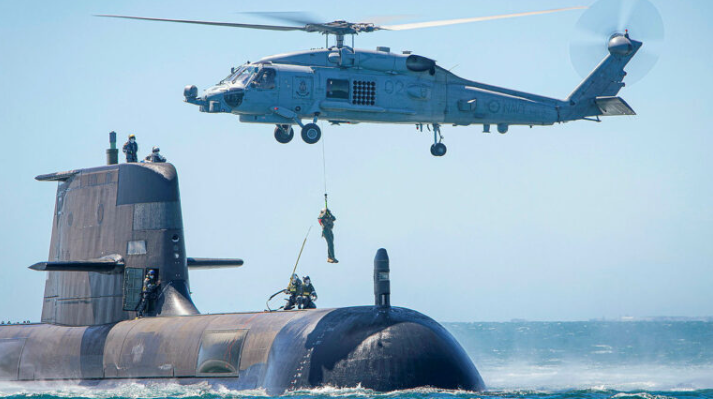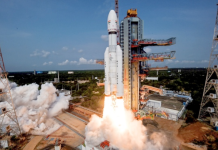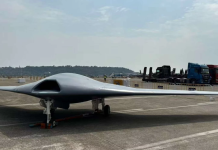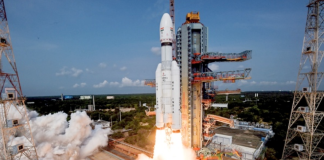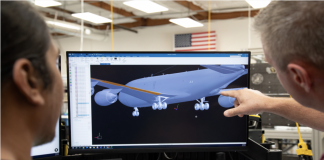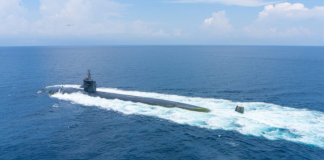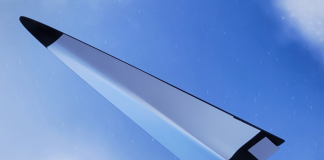By Colin Clark
CANBERRA — Senior Australian officials declared their relations with the United States sound in the wake of the victory of president-elect Donald Trump, dismissing concerns that the tripartite enterprise of AUKUS would be harmed.
“AUKUS is in the strategic benefit and interest of Australia, the United States and the UK. That’s the fundamental point here,” Defense Minister Richard Marles told a small group of reporters at the Submarine Institute of Australia conference two days before the election. “And that will continue to be the case at the end of this week as it is at the beginning. And we’re really clear, in all the engagement we’ve had in the United States, that whoever wins the United States election this week understands that.”
Marles pointed to the bipartisan support for AUKUS demonstrated by Congress. “And it’s not a guess. We’ve got a voting record. When you look at the way in which Democrats, Republicans — Trump Republicans — voted in the Congress at the end of last year in support of AUKUS, it was across the political spectrum,” he said.
“So we do have a sense of confidence that, going forward, this is a program that will be supported in the United States, as it will in the UK, as it will here.”
Following the election, Prime Minister Anthony Albanese called Trump to offer his congratulations. “We talked about the importance of the Alliance, and the strength of the Australia-US relationship in security, AUKUS, trade and investment,” he said in a tweet. “I look forward to working together in the interests of both our countries.”
Similarly, Foreign Minister Penny Wong extended the traditional congratulations to Trump on his election and said Canberra expects to work “very closely” with the Trump administration.
The morning after the election, she said, “I think that this is an alliance that is bigger than any individual, that is bigger than any past comments, that is about the big issues that we face as a nation, as a region and as a globe. I have confidence that just as different [US] administrations and different Australian Governments have worked together, we will work very closely with the Trump Administration to deliver on things that are very important to Australia, including the AUKUS pact.”
The Green Party here called again for Australia to exit AUKUS, a move Wong dismissed with prejudice.
“Well, the Greens continue to demonstrate their irresponsibility over and over again, but I would say this to Australians. First, remember what AUKUS is about, assuring the peace. It’s about deterrence to assure the peace in a contested region,” she said, in a veiled reference to China’s actions in the east and South China seas. “Secondly, the capability we gain under the submarines to be delivered under AUKUS is a sovereign capability. And the alliance matters to Australia’s interests. We are confident of our ability to continue to navigate these times, and I don’t think that the Greens’ approach is a responsible one.”
Climate Change And Trump
While AUKUS may be secure, there is likely to be a divide between the Albanese and Trump governments on another major issue with both economic and national security concerns: climate change.
The strategically important Pacific Islands are at risk of, in some cases, total destruction as a result of climate change, meaning it is an existential issue for those governments. The American president-elect has pledged to pull out again from the Paris Agreement, the key international climate agreement. Much of the Australian public and its leaders take the issue of climate change seriously, domestically and in terms of foreign policy and national security, so how Australia copes with Trump’s overall stance on climate change has become a hot topic this week.
“President Trump has campaigned on change. We shouldn’t be surprised if there’s change,” Wong told reporters today, according to a government transcript. “One of the areas we know from the previous Trump Administration, as they did withdraw from the Paris Agreement. Australia didn’t, because we don’t believe it’s in our national interest. You said, what is the point? Apart from the imperative of climate change, there is the imperative of the economic transition. We are going to have to be able to prosper in a world where many and much of the global economy is moving to net zero.”
While she didn’t mention the Pacific Islands, they will be watching.

